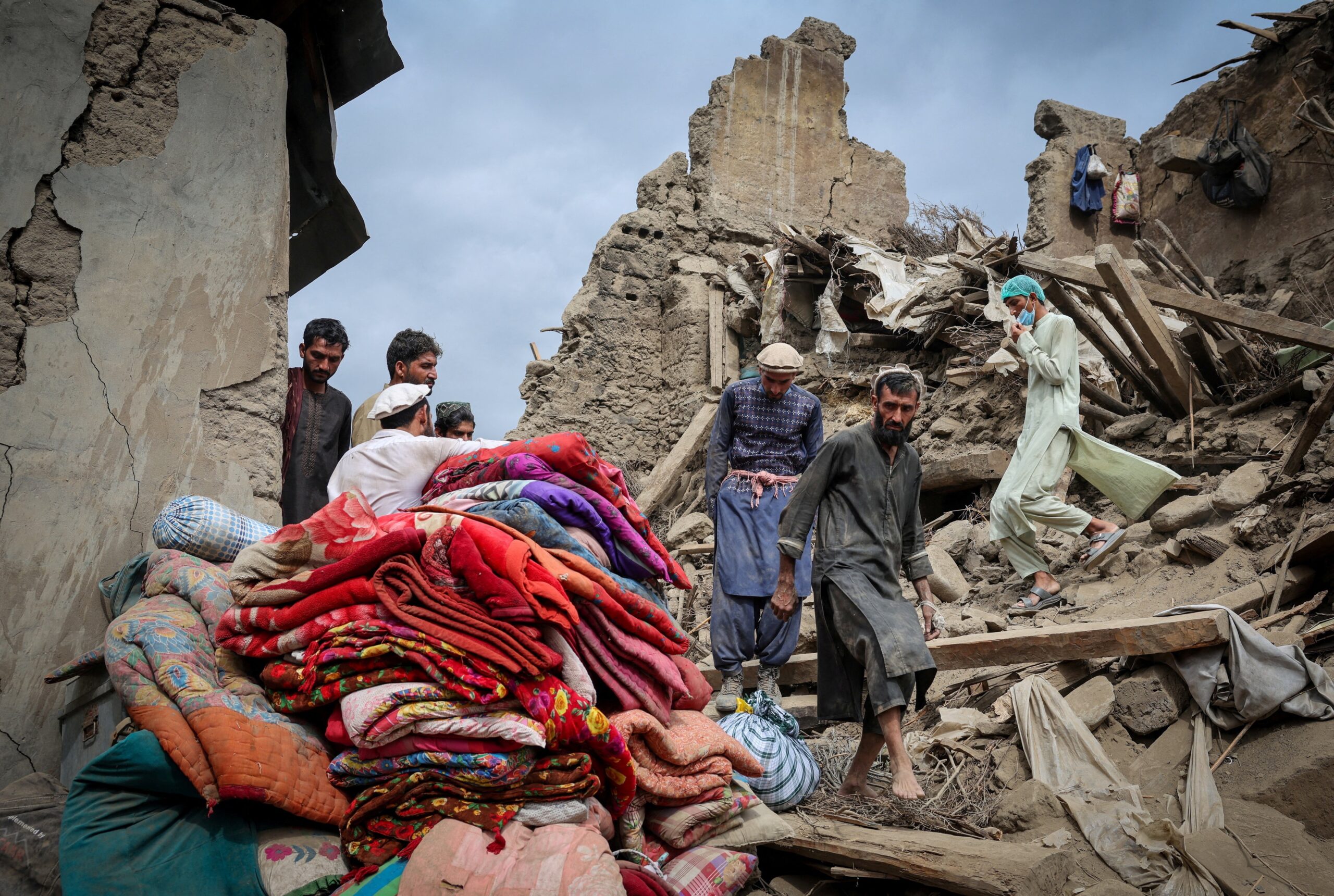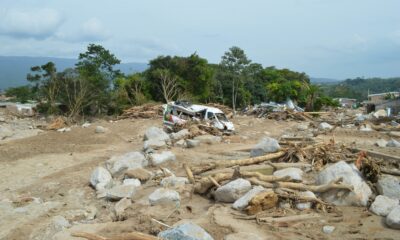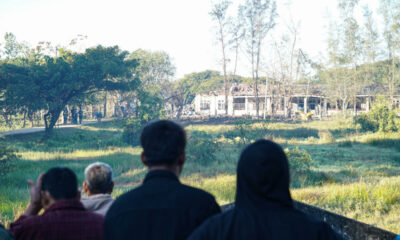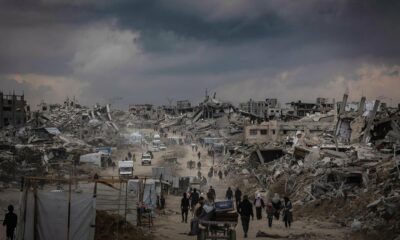News
Afghanistan Shaken Again: At Least Nine Dead as Fresh Earthquake Strikes Northern Provinces

Afghanistan Shaken Again: At Least Nine Dead as Fresh Earthquake Strikes Northern Provinces
Another tragedy has struck Afghanistan, this time, in the dead of night. A 6.3-magnitude earthquake rattled the northern region of the country on Sunday night, killing at least nine people and injuring more than 250 others, according to local officials.
The quake, which struck at a depth of around 28 kilometres, had its epicentre near Mazar-i-Sharif, one of Afghanistan’s largest and busiest cities. Residents there say the tremors hit suddenly, sending terrified families into the streets. “We thought the house was going to collapse,” one resident told local media, recalling the moments of panic as walls shook and dust filled the air.
Even in Kabul, nearly 420 kilometres away, people reported feeling the ground move.
Hospitals Flooded, Villages Cut Off
In Balkh province, where Mazar-i-Sharif serves as the capital, four people have been confirmed dead, according to health department spokesperson Kamal Khan Zadran. The main provincial hospital treated more than 120 injured, many of whom were later discharged.
In neighbouring Samangan province, five more deaths were reported along with 143 injuries, according to Mohammadullah Hamad from Afghanistan’s National Disaster Management Authority (NDMA).
Emergency teams have been deployed to assess the damage, but Afghanistan’s rugged terrain and limited infrastructure mean reaching remote areas can take days. Communication remains patchy, especially in mountainous regions where roads are often little more than dirt tracks.
“Many of these villages are completely isolated,” one NDMA worker said. “We won’t know the full picture for at least another day or two.”
A Country Still Reeling From Disaster
For Afghanistan, earthquakes are a grimly familiar reality and each one deepens an already fragile national crisis. This is the third major earthquake since the Taliban took power in 2021, and it comes on the heels of a devastating year.
In August 2025, a 6.0-magnitude tremor in the east flattened entire mountainside villages and claimed more than 2,200 lives. Before that, powerful quakes in Herat (2023) and Nangarhar (2022) left hundreds dead and thousands homeless.
Most Afghan homes, especially in rural regions, are built from mud and unreinforced brick no match for seismic shocks. With foreign aid dramatically reduced since the Taliban’s takeover, rebuilding efforts have been slow, leaving countless families living in temporary shelters or damaged homes.
Social Media Reaction and International Concern
News of the latest quake has prompted an outpouring of grief on social media, with Afghans sharing videos of damaged homes and makeshift medical tents set up outside hospitals. “We don’t even have proper roofs now the earth itself is our enemy,” one user wrote on X (formerly Twitter).
Humanitarian groups, including the United Nations, have voiced concern that the disaster could worsen the country’s dire humanitarian conditions. Afghanistan is already grappling with hunger, drought, and economic restrictions that have crippled its banking system.
UN aid officials have warned that nearly half the population faces food insecurity, a crisis now compounded by the latest quake and the return of millions of Afghan refugees pushed back from Iran and Pakistan.
A Land of Mountains, Quakes, and Survival
Located along the Hindu Kush mountain range, Afghanistan sits atop one of the world’s most active seismic zones, where the Indian and Eurasian tectonic plates collide. Tremors are frequent, but in a country battered by decades of war and underinvestment, even moderate quakes can bring catastrophic results.
Every new disaster lays bare the same harsh truth: Afghanistan’s people are left to rely largely on one another. With limited emergency infrastructure, it often falls to neighbours, families, and volunteers to dig survivors out of rubble or carry the wounded over treacherous mountain roads.
Aftershocks of a Different Kind
As rescue teams continue their search for survivors, questions linger over whether Afghanistan, still struggling with poverty, isolation, and dwindling aid can withstand yet another blow.
For those who survived Sunday night’s tremor, the fear now isn’t just about the next earthquake, but how to rebuild, once again, from the ruins.
“We’re used to hardship,” said one survivor in Mazar-i-Sharif. “But each quake takes a little more from us our homes, our hope, our sleep.”
{Source: IOL}
Follow Joburg ETC on Facebook, Twitter , TikTok and Instagram
For more News in Johannesburg, visit joburgetc.com



























